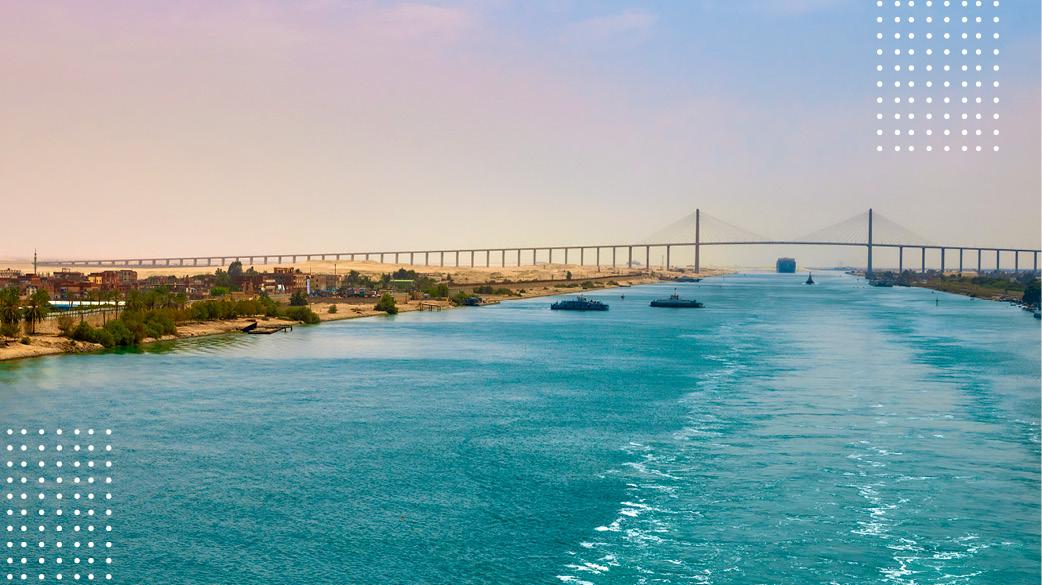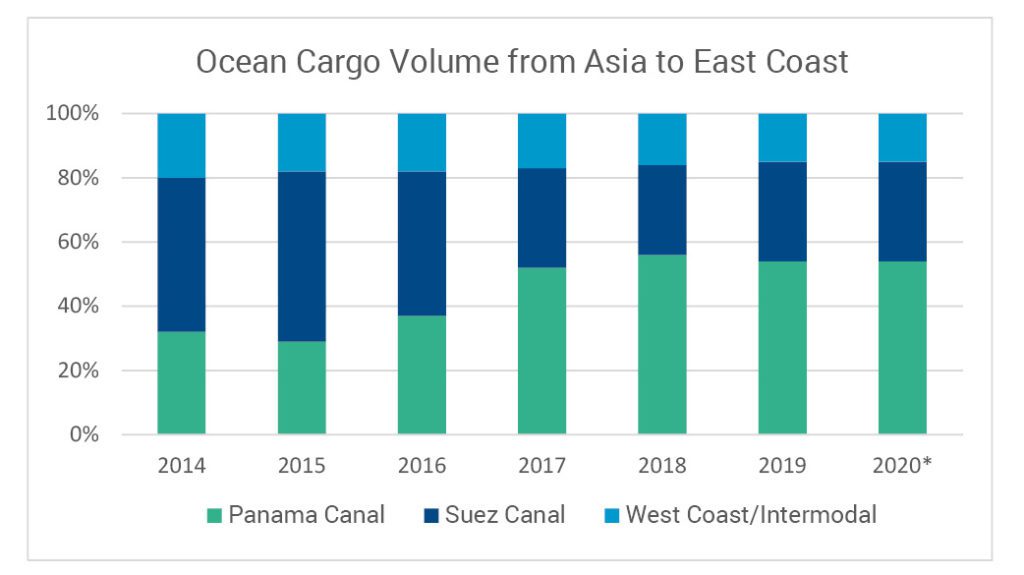Egypt’s Suez Canal Reopening Is Not the End of the Crisis
04/02/2021

The recent six-day blockade of Egypt’s Suez Canal came to an end when the Ever Given was freed on Monday, March 29, allowing waiting ships to traverse the waterway. Reports indicate the backlog of vessels moored at both ends of the canal surpassed 350, with more headed that way and each waiting for their turn to make the journey through the channel. Other vessels chose to make the lengthy transit around the Cape of Good Hope in Africa, headed for Europe and the United States Eastern Seaboard. Regardless of choice, these ships have all suffered tremendous delays, and the global supply chain will continue to feel the impacts for months to come.
What Happened and When Is Transit Expected to Return to Normal Volumes?
The crisis started on Tuesday, March 23, during a significant wind and sandstorm event when one of the largest container ships in the world, the Ever Given, ran aground, with the impact causing the stern to swing until it became lodged in the opposite bank, completely blocking the canal. Over the next six days, salvage crews relied on tugboats and dredgers to free the ship. Fortunately, the lunar calendar was also on their side, using the king-tides caused by a full spring moon to create a higher-than-usual tide to free the ship. Once the Ever Given was repositioned to the Great Bitter Lake holding area, the Suez Canal Authority (SCA) reopened the canal. Waiting ships have slowly made their way through the passage as they carry on to ports worldwide. The SCA hopes to have the backlog cleared by the end of the week.
Much discussion surrounds what this crisis translates to in dollars. Lloyd’s List estimates the delays caused by this blockage. The ramp-up in getting ships moving through the canal will lead to a delay in goods delivery throughout the global economy, costing upwards of $9 billion per day.
What Impact Will This Have on the U.S. Supply Chain?
The SCA published statistics indicating that containerized goods represent approximately 49% of total Suez Canal traffic, with the remaining vessels carrying primarily crude oil, liquefied natural gas and grain.
Focusing on container freight bound for the United States East Coast (USEC), recently released Panama Canal Authority (ACP) reports indicate that 31% of containers bound for U.S. ports are delayed due to the Suez Canal crisis. Thankfully, this number is lower than in previous years due to the expansion of the Panama Canal.


Impacts should be anticipated, especially on the U.S. Eastern Seaboard. The interruption in the supply chain is expected to lead to a drop in East Coast imports initially, with a surge of vessels arriving at unscheduled, similar timings. It will be critical for ports, drayage providers and carriers alike to manage the logistics process as quickly as possible to avoid ‘vessel bunching.’ Ocean providers may also choose to skip ports and cancel sailings, leading to additional equipment shortages and even tighter capacity. These issues may create problems similar to those already a substantial part of the backlog at Los Angeles-based West Coast ports.
Ultimately, it will take time to clear the logjam of ships wanting to head through the Suez Canal. With the ocean transportation market’s current state, the global supply chain cannot readily absorb the backlog. Effectively starting a ripple effect, these developments are expected to cause lengthy transit delays, port congestion and additional container position disruption, leading to higher spot rates throughout the global supply chain for months to come.
How Can Shippers Protect Themselves in a Crisis?
At Ascent, we strive to protect our clients and keep them informed, allowing us to work in partnership to make the best choices across all modes and at all points of a shipment’s lifecycle. We highly recommend that shippers work closely with a reliable 3PL to tap into the large pools of vetted providers and reliable carriers they offer, affording shippers the best opportunity to secure capacity and the best possible market rates during strained times in the global supply chain.
Ascent Global Logistics offers this and more. Our depth and expertise across all modes afford clients creative shipping solutions, all while watching your bottom line. Ascent helps its clients simplify supply chain management by providing customized solutions, premium customer service and state-of-the-art technology.
Who says logistics has to be complicated? We certainly didn’t. Contact the Ascent team to learn more.